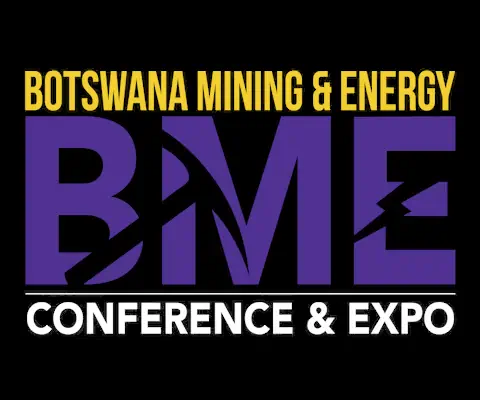Quantitative estimation of global warming
 V.V. Tetelmin1, 2
V.V. Tetelmin1, 2
1 Institute of Ecology of the Russian Peoples' Friendship University named after Patrice Lumumba, Moscow, Russian Federation
2 Public Council at the Ministry of Energy of the Russian Federation, Moscow, Russian Federation
Russian Mining Industry №3 / 2023 р. 64-70
Abstract: The paper presents a summary table of global warming energy patterns calculated using historical natural data accumulated by the world science. The analysis shows that in each successive decade contribution of the positive feedbacks to global warming is increasing as compared to the preceding decade. Each kilowatt-hour of energy produced and used by the humanity warms up our planet through the human-caused greenhouse effect by 18 kWh. The dependence functions of the radiative temperature equilibrium on the content of the three main greenhouse gases in the atmosphere have been derived. We propose functions for the dependence of the amount of accumulated thermal energy in the Earth's climatic system and the duration of global warming on the amount of the man-made greenhouse gases in the atmosphere. A forecast of the global sea level rise and the marginal frequency of natural disasters over time is provided. If the mankind has halved greenhouse gas emissions by 2060, the global warming will progress for about 210 years until it reaches the radiation equilibrium temperature of 4,2°C. By following this scenario, it will be possible to prevent a possible additional warming of the atmosphere by about 4,7°C in the future.
Keywords: global warming, climate system, greenhouse gases, thermal energy, radiation equilibrium temperature
For citation: Tetelmin V.V. Quantitative estimation of global warming. Russian Mining Industry. 2023;(3):64–70. https://doi.org/10.30686/1609-9192-2023-3-64-70
Article info
Received: 23.04.2023
Revised: 15.05.2023
Accepted: 22.05.2023
Information about the author
Vladimir V. Tetelmin – Dr. Sci. (Eng.), Chief Specialist of the Institute of Ecology of the Russian Peoples' Friendship University named after Patrice Lumumba, member of the Public Council at the Ministry of Energy of the Russian Federation; Moscow, Russian Federation; e-mail: This email address is being protected from spambots. You need JavaScript enabled to view it.
References
1. Solomon S., Qin D., Manning M., Miller H.L. (eds) Climate Change 2007: The Physical Science Basis. Cambridge, United Kingdom and New York, NY, USA: Cambridge University Press; 2007. 1007 p. Available at: https://www.ipcc.ch/site/assets/uploads/2018/05/ar4_wg1_full_report-1.pdf
2. Pachauri R., Meyer L. (eds) Climate Change 2014: Synthesis Report. Geneva. Switzerland: Intergovernmental Panel on Climate Change, IPCC; 2014. 163 p. (In Russ.) Available at: https://www.ipcc.ch/site/assets/uploads/2018/02/SYR_AR5_FINAL_full_ru.pdf
3. Shukla P.R., Skea J., Slade R., Al Khourdajie A., van Diemen R., McCollum D., Pathak M., Some S., Vyas P., Fradera R., Belkacemi M., Hasija A., Lisboa G., Luz S., Malley J. (eds) Climate Change 2022: Mitigation of Climate Change. Cambridge, UK and New York, NY, USA: Cambridge University Press; 2022. 48 p. Available at: https://www.ipcc.ch/report/ar6/wg3/downloads/report/IPCC_AR6_WGIII_SummaryForPolicymakers.pdf
4. Technical Summary. In: Masson-Delmotte V., Zhai P., Pirani A., Connors S.L., Péan C., Berger S., Caud N., Chen Y., Goldfarb L., Gomis M.I., Huang M., Leitzell K., Lonnoy E., Matthews J.B.R., Maycock T.K., Waterfield T., Yelekçi O., Yu R., Zhou B. (eds) Climate Change 2021: The Physical Science Basis. Cambridge, United Kingdom and New York, NY, USA: Cambridge University Press; 2021, pp. 33–144. Available at: https://www.ipcc.ch/report/ar6/wg1/downloads/report/IPCC_AR6_WGI_TS.pdf
5. Tetelmin V.V. Global warming potential. Okhrana okruzhayushchei sredy i zapovednoe delo. 2022;(1):93–102. (In Russ.)
6. Tetelmin V.V. Energy patterns and limits of global warming. Energiya: Ekonomika, Tekhnika, Ekologiya. 2023;(3):27–34. (In Russ.) https://doi.org/10.7868/S0233361923030059
7. Tetelmin V.V. Energy patterns and limits of global warming. Industrial Ecology. 2023;(1):51–59. (In Russ.) https://doi.org/10.52190/2073-2589_2023_1_51
8. Tetelmin V.V., Yazev V.A. Hydrocarbon geoecology. Dolgoprudnyi: Intellekt; 2009. 304 p. (In Russ.)
9. Bondur V.G. What makes the Earth sick. V mire nauki. 2022;(1/2):5–12. (In Russ.)
10. Tanaka K.R., Van Houtan K.S. The recent normalization of historical marine heat extremes. PLOS Climate. 2022;1(2);e0000007. https:// doi.org/10.1371/journal.pclm.0000007





